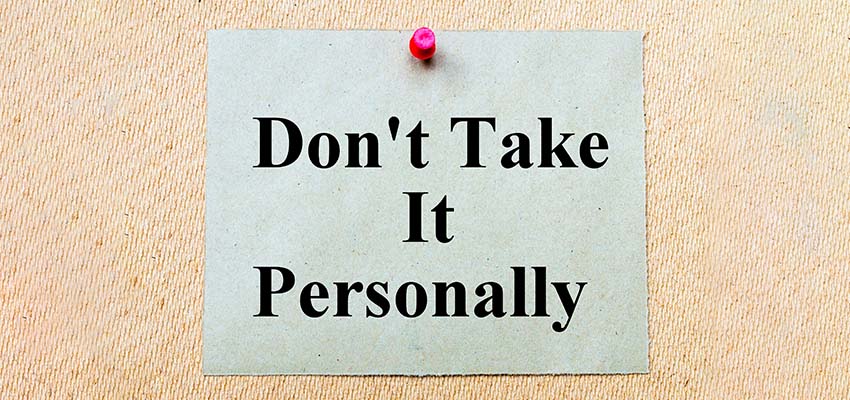Career rejection is a universal experience, yet it’s something we rarely prepare for. Whether it’s receiving a polite but crushing “we’ve decided to move forward with another candidate” email, being passed over for a promotion, or not getting called back after an interview, rejection can feel deeply personal. It can shake your confidence and make you question your abilities. But the truth is that rejection doesn’t mean the end of your career. It’s the beginning if you dive deeper into it and learn from your experience. Learning how to process, grow from, and move beyond career rejections can be one of the most valuable skills you develop.
Here’s how you can handle career setbacks with resilience and emerge stronger.
Acknowledge the Pain without Letting it Define You
Rejection hurts. It’s okay to feel disappointed, frustrated, or even angry when you don’t get the opportunity you worked hard for. Ignoring these emotions won’t make them disappear. Instead, allow yourself to feel them. Take a moment to reflect on what happened and why it is making you feel that way. However, it’s crucial to remember that rejection is not a reflection of your worth. It’s simply a feedback that helps you realign your goals or improve your approach. Don’t let a “no” make you question your value or derail your sense of purpose.
Don’t take Rejection Personally
One of the hardest lessons to learn about rejection is that it’s rarely personal. There are countless factors behind why someone else was chosen over you, many of which is outside of your control. Sometimes, companies are looking for very specific skill sets, or perhaps internal dynamics influenced the hiring decision. Instead of taking rejection personally, view it as part of a bigger picture. Just because you weren’t the right fit for one opportunity doesn’t mean you won’t be perfect for another. Rejection often allows you to realign your goals.

Turn Rejection into a Chance to Learn and Grow
Did I fully understand the requirements of the role?
Was my resume tailored to highlight my relevant skills?
Did I effectively communicate my skills and value that I can add to the company during the interview?
When possible, seek feedback from the hiring manager or recruiter. While not every organization will provide detailed insights, those that do can help you identify areas for improvement. Use this feedback as a roadmap to refine your approach and sharpen your skills for future opportunities
Perceive Rejection as an Opportunity to Redirect
While rejection can feel like a door being shut, it often serves as a redirection toward better opportunities. Many people who’ve faced significant career setbacks later realize that rejection was the push they needed to pursue a path better aligned with their goals. Think of rejection as a stepping stone rather than a block on your path. Each “no” gets you closer to the “yes” that’s meant for you. Trust the process, even when it feels discouraging.
Take Charge of What You Can Control
Rejection can leave you feeling powerless, but there’s always something within your control. Instead of dwelling on what didn’t work out, focus on actionable steps you can take to strengthen your career prospects:
Upskill Yourself: Enroll in a course, learn a new tool, or refine an existing skill to make yourself more competitive.
Network with Professionals: Reach out to professionals in your field, attend events, or engage on LinkedIn to expand your connections.
Refine your Professional portfolio: Update your resume, optimize your LinkedIn profile, and build a portfolio that showcases your best work.
Taking proactive steps not only boosts your confidence but also increases your chances of landing to the next opportunity and making it easy for you to crack it.

Building Resilience Through Self-Care
Rejection can take a toll on your mental and emotional well-being thus making self-care essential. Practice mindfulness or meditation to calm your mind and be grounded. Engage in the activities that brings you joy and happiness. Remember, resilience isn’t about avoiding difficult emotions, it’s about nurturing yourself through them. When you prioritize your well-being, you’ll find it easier to bounce back from setbacks.
Stay Connected to Your Support System
Navigating career rejection can feel isolating, but you don’t have to go through it all alone. Ask support from your friends, family, mentors, or colleagues who can offer encouragement. Sometimes, talking about your experiences can help you process them more effectively. A trusted mentor might even offer insights or advice to help you tackle future challenges. Surrounding yourself with positivity and support can make all the difference during tough times.
Keep the Bigger Picture in Mind
It’s easy to let one rejection overshadow all your achievements and ambitions, but setbacks will teach you what to do differently so that you achieve success. Your career is a marathon, not a sprint, and every experience be it good or bad shapes your path forward. Instead of fixating and focusing on the doors that close, focus on the possibilities that lie ahead. Keep your long-term goals in mind and remind yourself why you started this journey in the first place.
Steps to Move Forward and look beyond Rejection
Here are some actionable steps to get back into track after facing a rejection:
- Keep Applying Till you Find your Dream Job: Don’t let one rejection hold you back. Keep applying for roles that interests you and align with your skills.
- Prepare in a Different way: Revise your resume, practice for interviews and seek advice from career coaches to strengthen your approach.
- Stay Positive: Celebrate small wins, whether it’s getting an interview or connecting with someone new. Positivity breeds motivation.
Career rejection is tough, but it’s not the end of the road. It is a sign that you have to redirect yourself. Each rejection teaches you something new, whether it’s about yourself, your goals, or your approach. By processing your emotions, seeking feedback from professionals and taking proactive steps to improve, you can transform rejection into a powerful catalyst for growth. Remember, every successful professional has faced rejection in their professional life. What sets them apart is their resilience and determination to keep moving forward and not letting one setback define them. You have the strength to do the same. Reflect on your experience, learn from the same and grow through it.






